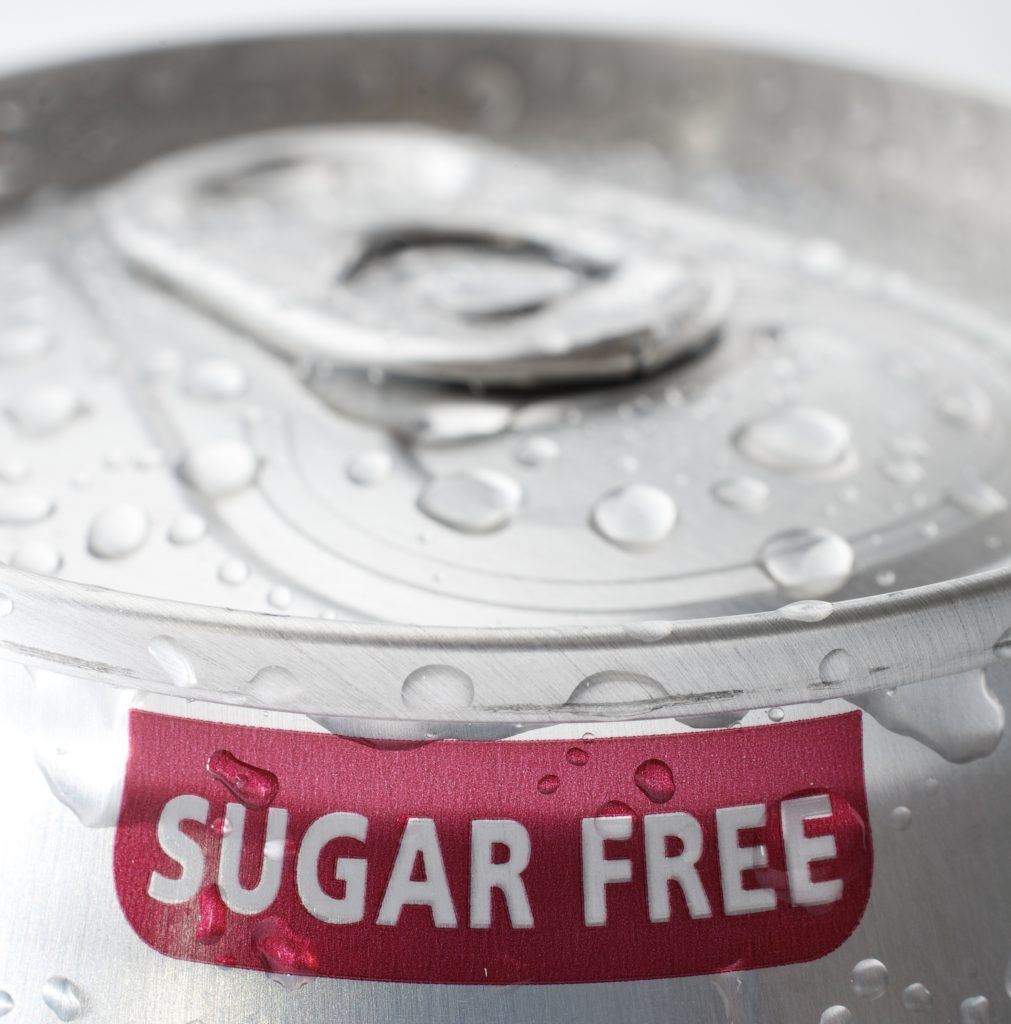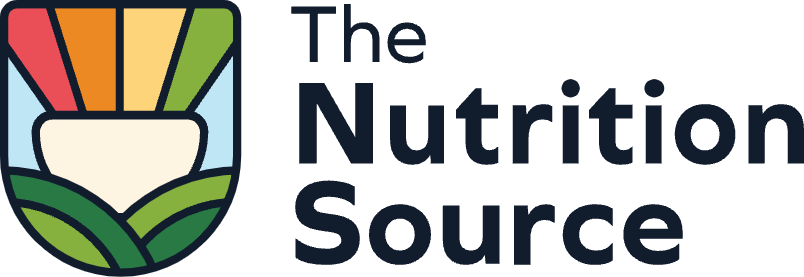
The health effects of low-calorie/artificial sweeteners are inconclusive, with research showing mixed findings.
Low-calorie sweeteners (LCS) are sweeteners that contain few to no calories but have a higher intensity of sweetness per gram than sweeteners with calories—like table sugar, fruit juice concentrates, and corn syrups. Other names for LCS are non-nutritive sweeteners, artificial sweeteners, sugar substitutes, and high-intensity sweeteners.
LCS are found in many beverages and foods like frozen desserts, yogurt, candies, baked goods, chewing gum, breakfast cereals, gelatins, and puddings. Foods and beverages containing LCS sometimes carry the label “sugar-free” or “diet.” Some LCS can be used as general purpose sweeteners.
Because LCS are many times sweeter than table sugar, they can be used in smaller amounts to achieve the same level of sweetness as sugar. People may use LCS in place of sugar to consume fewer calories or less sugar or to better control their blood glucose if they have diabetes or prediabetes.
There are six LCS approved as food additives by the U.S. Food and Drug Administration (FDA). [1] Numerous studies have been conducted on each type to identify possible toxic effects. They are all sweeter than table sugar (sucrose) but contain few or no calories. They include:
| Low-Calorie Sweetener | Brand Names† | Sweetness as compared with sugar | Acceptable Daily Intake* (maximum number of tabletop sweetener packets per day) |
| Aspartame | Equal®, NutraSweet®, Sugar Twin® | 200 times sweeter than sugar | 75** |
| Acesulfame-K | Sunett®, Sweet One® | 200 times sweeter than sugar | 23 |
| Saccharin | Sweet’N Low®, Sweet Twin®, Necta Sweet® | 200-700 times sweeter than sugar | 45 |
| Sucralose | Splenda® | 600 times sweeter than sugar | 23 |
| Neotame | Newtame® | 7,000-13,000 times sweeter than sugar | 23 |
| Advantame | No brand names | 20,000 times sweeter than sugar | 4,920 |
*An Acceptable Daily Intake is the maximum amount of a substance that can be consumed daily over the course of a person’s lifetime with no appreciable health risk, and is based on the highest intake that does not lead to observable adverse effects. Calculations are based on a 132 pound individual.
**People with a rare hereditary disease known as phenylketonuria (PKU) have difficulty breaking down phenylalanine, a component of aspartame, and should limit their intake of phenylalanine from all sources, including aspartame.
†The inclusion of brand-names on this list is for reference only and does not constitute an endorsement. The Nutrition Source does not endorse specific brands.
Two other LCS are permitted for specific conditions of use in the food supply through the FDA’s GRAS (“Generally Recognized as Safe”) notification program:
- Certain Steviol Glycosides, which come from the South American Stevia plant, Stevia rebaudiana.
- Steviol glycosides are found in foods and beverages in the U.S. under the names Rebaudioside A (or Reb A), Stevioside, Rebaudioside D, or steviol glycoside mixtures that contain Rebaudioside A and/or Stevioside as the main ingredients. Commercial brand names include Truvia® and PureVia®. At 200-400 times sweeter than sugar, the Acceptable Daily Intake is 9 packets daily.
- Stevia leaf and unrefined stevia extracts are not considered GRAS and are not allowed in the U.S. for use as sweeteners.
- Monk Fruit, also known as luo han guo or Siraitia grosvenorii Swingle fruit extract (SGFE), comes from a plant native to Southern China.
- Monk fruit is 100-250 times sweeter than sugar.
- An Acceptable Daily Intake has not yet been determined.
Sugar alcohols
Sugar alcohols, or polyols, are not classified as LCS but have slightly less calories than table sugar. The sweetness of sugar alcohols varies from 25-100% as sweet as sugar. They do not promote tooth decay or cause sharp rises in blood glucose. Examples are sorbitol, xylitol, lactitol, mannitol, erythritol, and maltitol. They are found in sugar-free candies, cookies, ice cream, beverages, and chewing gums. They are also used in toothpastes and medicines like cough syrups.
In some people, eating high quantities of certain sugar alcohols can cause loose stools or diarrhea. They are absorbed slowly and may cause extra water to be drawn into the intestines. [2] With continued use, people may improve their tolerance.
More research is needed on the longer-term use of sugar alcohols. An observational three-year study found an association between erythritol as an added sweetener and cardiovascular disease (CVD) events, such as stroke and heart attack, in patients with heart disease or risk factors for CVD (e.g., diabetes, high blood pressure). [3] When comparing patients with the lowest and highest blood levels of erythritol, the latter had twice the risk of developing a CVD event. It is noted that the researchers only checked blood erythritol once at the start of the study. They further investigated with a separate lab study, and found that exposing human platelets to erythritol increased the risk of blood clot formation. Erythritol occurs naturally in small amounts in fruits, wine, and beer. But the amount of erythritol used as an additive in low-calorie beverages, ice cream, chewing gums, and candies is much higher.
Low-Calorie Sweeteners and Health
The health effects of LCS are inconclusive, with research showing mixed findings. Research is also looking at potential differences in effects from the various types of LCS. The following reviews research specific to LCS beverages.
- A large observational study of French women showed that both sugar-sweetened beverages (SSBs) and LCS beverages were linked with an increased risk of developing type 2 diabetes. [4] The authors noted that a high intake of SSBs has been associated with weight gain, possibly due to lower satiety and increased blood sugar and insulin levels, leading to insulin resistance. LCS beverages may also cause weight gain by stimulating appetite and a sweet preference in some people.
- With observational studies, it should be noted that the theory of reverse causation is also possible (for example, when people who are overweight or have prediabetes begin drinking LCS beverages to improve their blood sugar control, which produces a false association between higher LCS beverage intake and future risk of developing diabetes). Reverse causation may explain the finding from a meta-analysis of 17 cohort studies showing an 18% higher incidence of type 2 diabetes with SSBs and 25% higher incidence with LCS beverages, compared with no intake of these drinks. [5]
- In a detailed analysis of data from the Health Professionals Follow-up Study, the positive association observed between LCS beverage intake and type 2 diabetes incidence was largely explained by higher baseline BMI and metabolic conditions, which might have led to increased use of LCS beverages in the first place. [6]
- In three large prospective cohort studies of U.S. men and women, intake of SSBs was associated with an average 3-pound weight gain within each 4-year time period. Substituting the same amount of SSBs with water or LCS beverages was associated with less weight gain (about 1 pound) within each 4-year time span. [7]
- For adults trying to wean themselves from sugary soda, diet soda is a possible short-term substitute, best used in small amounts over a short period of time. For children, the long-term effects of consuming LCS beverages are unknown, so it’s best for kids to limit their intake. [8]
Weight control
Long-term observational studies show that regular consumption of LCS beverages reduces calorie intake and promotes less weight gain or weight maintenance, but other research shows no effect, and some studies even show weight gain. [9] Randomized controlled trials also show mixed findings, although most have shown a modest reduction in weight. [10] Most of these studies are short-term with a small number of participants, making it difficult to provide definitive conclusions on LCS beverages and weight control. Different comparisons among studies may also produce different results; for example, was LCS beverage intake being compared with SSBs, juice, or water?
The human brain responds to sweetness with signals to eat more. By providing a sweet taste without any calories, however, LCS beverages may cause us to crave more sweet foods and drinks, which can add up to excess calories. Although hypothetical and not proven in human studies, research is actively looking at proposed mechanisms of LCS beverages that may affect appetite and weight:
- Do repeated exposures to the sweet taste of LCS promote a preference for sweets in the diet?
- Does the sweet taste of LCS stimulate an insulin response even though blood glucose does not change, leading to an increased appetite and food intake?
- If LCS beverages (as compared with SSBs) do not release hormones in the stomach that signal satisfaction, may a person increase their food intake due to hunger?
- Animal studies have shown that LCS can change gut microbiota, leading to weight gain and increased blood glucose levels. Would a similar effect be found in human studies?
At the University of California-San Diego, researchers performed functional MRI scans as volunteers took small sips of water sweetened with sugar or sucralose. Sugar activated regions of the brain involved in food reward, while sucralose didn’t. [11] It is possible, the authors say, that sucralose “may not fully satisfy a desire for natural caloric sweet ingestion.” So, while sugar signals a positive feeling of reward, LCS may not be an effective way to manage a craving for sweets.
Scientific advisory
A 2011 statement from the American Heart Association and American Diabetes Association concluded that when used judiciously, non-nutritive sweeteners (including low-calorie sweeteners, artificial sweeteners, and non-caloric sweeteners) might help with weight loss or control, and could also have beneficial metabolic effects. The statement also points out, however, that these potential benefits will not be fully realized if there is a compensatory increase in energy intake from other sources—ultimately saying that at this time there is insufficient data to make a conclusive determination about using non-nutritive sweeteners; more research is needed. [18]
The American Heart Association and American Diabetes Association followed this with a 2018 scientific advisory specific to LCS beverages and cardiometabolic health. [8] The report cited the decline in consumption of both SSBs and LCS beverages in the United States, suggesting that it is possible to reduce SSBs without necessarily increasing LCS beverage intake. The advisory outlined the following summary points:
- Children should not drink LCS beverages in the long-term because of unknown effects. If there is a potential increased risk in adults of metabolic syndrome, type 2 diabetes, and cardiovascular events with diet beverage intake, the risk could be heightened in a child due to their smaller body size and earlier exposure.
- For adults who are regular high consumers of SSBs, LCS beverages may be a useful temporary replacement strategy to reduce intake of SSBs. This may be particularly helpful for those who are used to a sweet-tasting beverage and for whom water, at least initially, is an undesirable option.
- Alternatives to LCS beverages and SSBs, such as plain, carbonated, or unsweetened flavored waters, should be encouraged for all.
- The potential benefits from LCS beverages as replacements for SSBs will not be fully realized if their use is offset by an increase in calorie intake from other foods or beverages. Additionally, an overall healthful dietary pattern is recommended.
- Further research on the effects of LCS beverages on weight control, cardiometabolic risk factors, and risk of cardiovascular disease and other chronic diseases is needed.
Related
Unpacking WHO guidelines on non-sugar sweeteners
Last reviewed July 2023

